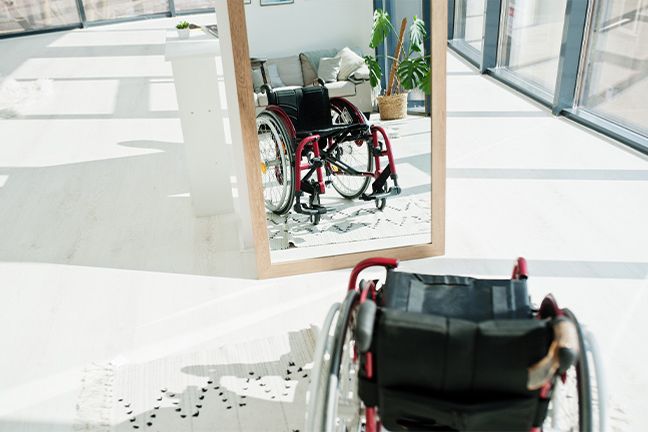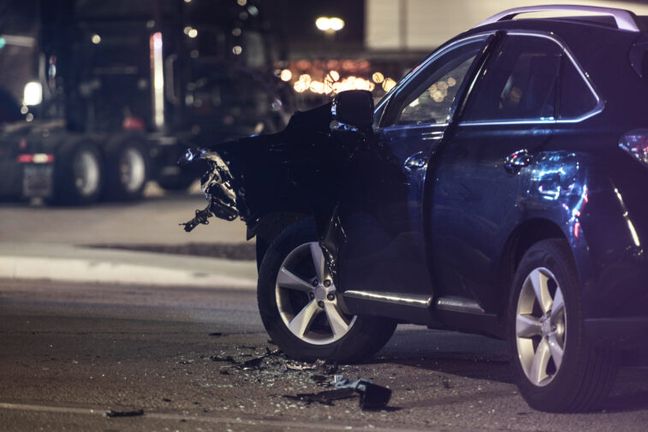Background
In Abraham v. Thomas Jefferson University Hospital[i], plaintiff, a surgeon and director of orthopedic surgery, alleged a female junior medical resident and medical student became sexually aggressive without his consent while he was too intoxicated to resist at a 2018 pool party at his home.[ii] Plaintiff reported the incident to the hospital. Likewise, the resident also filed a report with the hospital, alleging non-consensual sexual intercourse. Plaintiff alleged the medical resident filed the report after he made his report, in retaliation.[iii] The resident also filed a police report. Both the police and the hospital investigated the alleged sexual assault.[iv]
According to plaintiff, the hospital’s investigation was fraught with errors and due to the hospital’s mishandling, he was labeled a rapist and ostracized by professional colleagues, referring physicians, and residents. Plaintiff’s damages were based in part on past and ongoing reputational harm to him professionally since his reputation was unblemished before the events.[v] Additionally, plaintiff sought damages based upon his anxiety, depression, and suicidal ideation, because of the hospital’s mishandling of the sexual assault investigation.[vi]
In plaintiff’s presentation of the events at trial, he focused on the hospital’s failure to investigate his allegations of sexual assault and instead, conducted a flawed, and gender-biased investigation against him.[vii] In essence, he alleged that because he was a man, the hospital investigated the incident presuming the female resident was the victim. Plaintiff also presented to the jury arguments that the hospital failed to investigate his allegations that the resident’s report of sexual assault was retaliatory due to his gender.[viii]
Citing the criminal investigation and fearing the bias which pervaded the investigation, plaintiff did not cooperate with the hospital’s investigation. Instead, he relinquished his privileges and faculty position at the hospital prior to the sexual misconduct hearing.[ix] The hospital’s Title IX investigation concluded without any findings against plaintiff.[x] Plaintiff alleged that, despite that finding, the hospital continued to wrongfully interfere with his ability to practice medicine.[xi]
Plaintiff’s case was based, in part, on gender discrimination.[xii] In contrast, the hospital contended its actions were based upon the power disparity between the plaintiff and his subordinate, plaintiff’s admissions of unethical and improper conduct, and the police investigation into the matter.[xiii] Plaintiff admitted he had sexual intercourse with the resident, (who he supervised), the resident spent the night, and plaintiff attempted to have sex with her again, despite knowing conducting a sexual relationship with a junior resident/student was unethical and improper.[xiv] Those admissions, the hospital contended, were the basis of its investigation.
The Evidence
At trial, the plaintiff argued the hospital’s investigation should have cast him as the only victim/complainant and the hospital should have investigated the fact that the junior resident got plaintiff too drunk to consent.[xv] Plaintiff argued because he is a man, the hospital investigated the alleged assault as if the junior resident was the victim. Plaintiff argued he was sexually assaulted and the hospital’s failure to treat the case as a sexual assault violated Title IX.[xvi]
The court excluded evidence of the plaintiff’s own statements made before, during, and after the incident but before suit was filed.[xvii] That evidence included: (1) a text message from plaintiff to his colleagues encouraging them to bring young, hot, single females to his party to help pick him up; (2) a string of text messages between plaintiff and his friend, which occurred when plaintiff was not drunk, which suggested plaintiff intended to have sex with the junior resident and which, after he had sex with the resident, referred to him having made a bad choice; and, (3) a document demonstrating plaintiff was not intoxicated and had not been forced to drink whiskey by the junior resident as he alleged.[xviii] In excluding this evidence, the court found “the jury [was] entitled to hear testimony about the investigation itself and whether it was perfunctory or positive or perfect.”[xix] As a result, any evidence about statements made by plaintiff outside of the scope of the investigation were inadmissible.
At trial, plaintiff was permitted to testify regarding the party and the resident’s conduct while portraying himself as the victim.[xx] Due to the court’s ruling excluding evidence, the defense was able to do very little to undermine plaintiff’s portrayal of himself as the victim.
The Verdict
The jury awarded the plaintiff $15,000,000.00.[xxi] Plaintiff originally sought $5,000,000.00 in compensatory damages but made a claim of punitive damages at the end of the trial.
The hospital has filed a motion for a new trial, arguing the trial court improperly excluded plaintiff’s inconsistent statements, which would have been used to undermine plaintiff’s credibility, and urging the appellate court to undo the award.[xxii] In essence, the defense contends the court tied its hands, and the result was the jury heard a one-sided account of the events.
Takeaway
With the exclusion of evidence that could have been used to undermine plaintiff’s credibility, plaintiff’s counsel was permitted to tell a very one-sided story to the jury, which likely fanned the flames of juror anger. With their hands tied, the defense was unable to offer evidence to the contrary and present an alternative story for the jury. This verdict demonstrates the power of being able to control the narrative. Even in a case which presents an uphill battle, it is important for defense to do their best to shift the narrative and tell their story. Although defense here was not able to clarify the facts, defense could still have taken more control of the story by using the Nuclear Verdicts® defense methods of accepting responsibility, giving a number, personalizing the corporate defendant, and arguing pain and suffering. Though it is not clear what strategies defense may have employed here, it is possible these strategies could have changed the outcome by reducing juror anger and allowing the defense to take back control, shifting the power of the narrative back to the defense even without the ability to tell the jury the full story.
Keep Reading
More by this author
Sources
[i] Case 2:20-cv-02967-MMB
[ii] Case 2:20-cv-02967-MMB document 153-2
[iii] Case 2:20-cv-02967-MMB document 1
[iv] Case 2:20-cv-02967-MMB document 153-2
[v] Case 2:20-cv-02967-MMB document 1
[vi] Id.
[vii] Id.
[viii] Id.
[ix] Case 2:20-cv-02967-MMB documents 1 and 153-2
[x] Id.
[xi] Id.
[xii] Case 2:20-cv-02967-MMB document 153-2
[xiii] Id.
[xiv] Id.
[xv] Id.
[xvi] Id.
[xvii] Id.
[xviii] Id.
[xix] Abraham v. Thomas Jefferson Univ., Civil Action 20-29670, 3 (E.D. Pa. Dec. 1, 2023)
[xx] Id.
[xxi] Case 2:20-cv-02967-MMB document 133
[xxii] Case 2:20-cv-02967-MMB document 153-2

 Editor: Grace Shuman
Editor: Grace Shuman
 Cannabis Workers Allege Quota to Trim 4 Pounds a Day Violates the California Labor Code
Cannabis Workers Allege Quota to Trim 4 Pounds a Day Violates the California Labor Code
 The Ninth Circuit Reminds Us: Every Word Matters
The Ninth Circuit Reminds Us: Every Word Matters
 NO WAY, PRO SE! The Consequences of Abusing the Judicial System as a Pro Se Litigant in Colorado
NO WAY, PRO SE! The Consequences of Abusing the Judicial System as a Pro Se Litigant in Colorado
 Victim of Financial Mismanagement or Unlawful Retaliation? New Jersey City University Program Founder Claims School Retaliated After Reporting Alleged Sexual Harassment
Victim of Financial Mismanagement or Unlawful Retaliation? New Jersey City University Program Founder Claims School Retaliated After Reporting Alleged Sexual Harassment
 “Real Housewives” Gets a Reality Check
“Real Housewives” Gets a Reality Check
 Missing a Chapter: Insufficiency of Expert Deposition Testimony in Medical Malpractice Litigation
Missing a Chapter: Insufficiency of Expert Deposition Testimony in Medical Malpractice Litigation
 Crash Course: Why Summary Judgment Misses the Mark in Illinois Multi-Cause Limousine Crash Collision
Crash Course: Why Summary Judgment Misses the Mark in Illinois Multi-Cause Limousine Crash Collision
 Bitter Truths: Lead, Cadmium, and Defective Pleadings in California Chocolate Class Action
Bitter Truths: Lead, Cadmium, and Defective Pleadings in California Chocolate Class Action
 The Law of Unintended Consequences: Including Insurance Brokers in Litigation Strategy Communication May Waive the Attorney-Client Privilege
The Law of Unintended Consequences: Including Insurance Brokers in Litigation Strategy Communication May Waive the Attorney-Client Privilege
 An Employer Can Benefit from Being the Most Reasonable Person in the Courtroom
An Employer Can Benefit from Being the Most Reasonable Person in the Courtroom
 BUCKLE UP: Massive Nuclear Verdict® Has Pennsylvania in a Tizzy!
BUCKLE UP: Massive Nuclear Verdict® Has Pennsylvania in a Tizzy!
 $1.75 M Settlement Ends EEOC Claim
$1.75 M Settlement Ends EEOC Claim
 Pandemic Nightmare: Horse Racing Track Wants Coverage for COVID Business Losses
Pandemic Nightmare: Horse Racing Track Wants Coverage for COVID Business Losses
 I (May) Survive: A Respondeat Superior Claim May Survive Despite Dismissal of a Claim Against an Employee
I (May) Survive: A Respondeat Superior Claim May Survive Despite Dismissal of a Claim Against an Employee
 Arizona Construction Lenders Beware – You Might Not Be Insured Against a Senior Mechanics’ Lien!
Arizona Construction Lenders Beware – You Might Not Be Insured Against a Senior Mechanics’ Lien!
 Arizona Court of Appeals Insulates County from Liability for Deputy Sheriff’s Negligence
Arizona Court of Appeals Insulates County from Liability for Deputy Sheriff’s Negligence